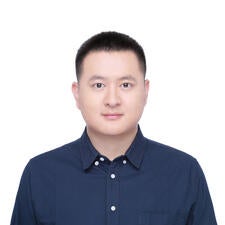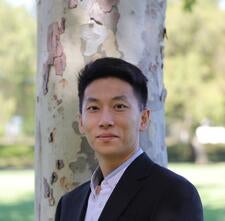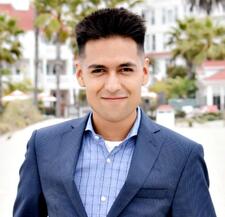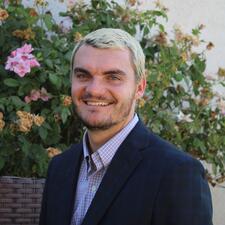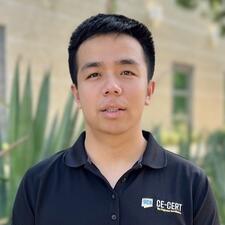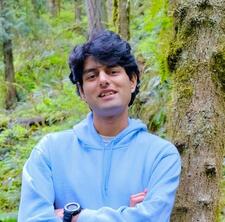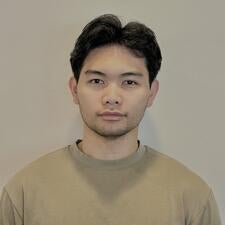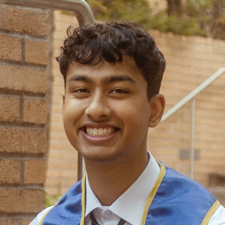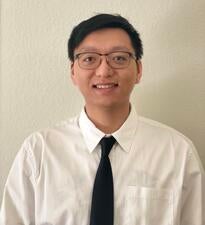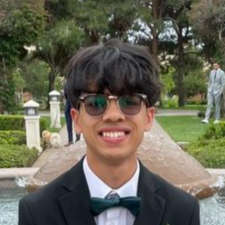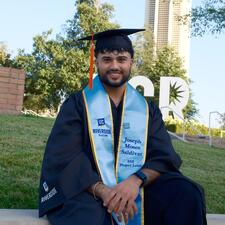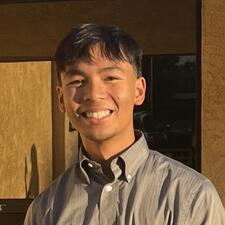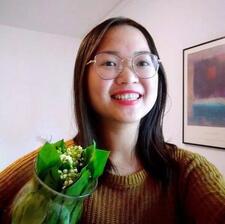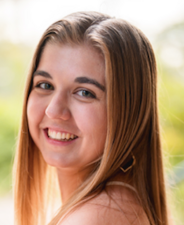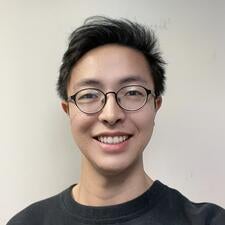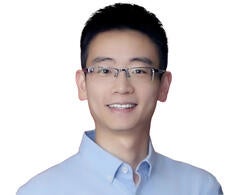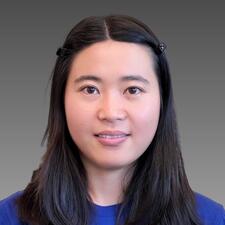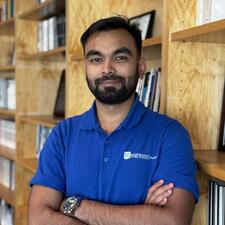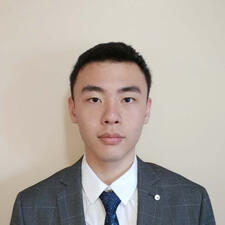CE-CERT Announces 2024-2025 Scholarship Recipients
July 30, 2024
CE-CERT is proud to announce the recipients of the 2024-2025 Scholarship Awards totaling $52,500. We would like to congratulate them on their hard work and thank our generous donors who made these awards possible.
Esther F. Hays Graduate Fellowship
Chuheng Wei
Electrical and Electronics Engineering
Chuheng is a second-year Ph.D. student with a focus on autonomous vehicle technologies and intelligent transportation systems. He conducts research on enhancing safety and energy efficiency in autonomous driving under non-ideal conditions by developing advanced multi-sensor fusion techniques. Chuheng's aspirations include leading initiatives that bridge theoretical research and practical applications. His future career plan is to advance autonomous vehicle safety and reliability.
Dongbo Peng
Electrical Engineering
Dongbo is a third-year Ph.D. student with a focus on advanced intelligent transportation system methods for sustainable freight dispatching. He conducts research on designing optimization models and algorithms to improve transportation efficiency, resilience, and environmental wellness. Dongbo aspires to continue developing innovative strategies to enhance efficiency, reduce environmental impact, and promote the adoption of green technologies in transportation. His future career plan is to apply his expertise in optimization and AI to make a meaningful impact in both academic and industrial settings.
Emmanuel Hidalgo Gonzalez
Electrical Engineering
Emmanuel is a third-year Ph.D. student with a focus on truck electrification and energy consumption modeling for Battery Electric Trucks (BETs). He conducts research on refining eco-routing strategies and optimizing operational efficiency, addressing range anxiety and enabling data-driven decisions for fleet owners. Emmanuel's aspirations include helping fleet owners maximize efficiency and minimize environmental impact. His future career plan is to continue developing tools for truck electrification and contribute to sustainable transportation.
Troy Hurren
Chemical and Environmental Engineering
Troy is a second-year Ph.D. student with a focus on improving air quality through vehicle emissions characterization and mitigation. He conducts research on using alternative fuels in heavy-duty engines and studying real-world ammonia emissions from gasoline vehicles. Troy's aspirations include working for major OEMs or pursuing an academic career, leveraging his research to develop innovative solutions in emissions characterization and sustainable transportation. His future career plan is to ensure efficient and clean transportation for everyone.
Huawei Li
Chemical and Environmental Engineering
Huawei is a fourth-year Ph.D. student with a focus on the formation of secondary organic aerosols (SOA) from urban sources. He conducts research on enhancing industry understanding of sustainability, permitting, and environmental protection activities. Huawei's aspirations include developing effective communication skills to disseminate research outcomes to both scientific and non-scientific audiences. His future career plan is to leverage his expertise in atmospheric chemistry to impact both research and practical applications significantly.
Sunandan Mahant
Chemical and Environmental Engineering
Sunandan is a first-year Ph.D. student with a focus on characterizing size-dependent viscosity and transition of atmospheric aerosols. He conducts research on filling knowledge gaps in the effect of aerosols on climate, providing a better understanding of their environmental impacts. Sunandan's aspirations include continuous learning and improvement to make significant contributions to solving environmental challenges. His future career plan is to advance atmospheric research and improve our understanding of aerosol impacts.
Jim Guthrie Research Award Recipient
Hung Nghi Nguyen
Electrical Engineering
Hung is a fourth-year undergraduate student with a focus on Cellular-Vehicles to Everything (C-V2X) automotive communication technology and Localization modules using GNSS signals for UCR EcoCAR. He conducts research on establishing a communication protocol for autonomous vehicles to exchange safety data. Hung's aspirations include working in autonomous vehicle technology development at leading automotive companies. His future career plan is to contribute to the next generation of autonomous vehicle technology, making transportation safer and more efficient.
Isean Bhanot
Computer Engineering
Isean is a third-year undergraduate student with a focus on creating a multi-robot perception dataset in the ARCS Laboratory. He conducts research on enabling researchers worldwide to test multi-agent localization and mapping algorithms in agricultural environments, promoting advancements in robotics research. Isean's aspirations include working in robotic system design and optimization while inspiring others through teaching. His future career plan is to contribute significantly to robotics research and education.
Arthur Lo
Mechanical Engineering
Arthur is a third-year undergraduate student with a focus on electric vehicle technology as part of the UCR EcoCAR team's System, Design & Integration (SDI) subteam. He conducts research on gaining and applying engineering skills to improve electric vehicles. Arthur's aspirations include working in the automotive, robotics, or aerospace industry.
Rahul Shah
Mechanical Engineering
Rahul is a third-year undergraduate student with a focus on mechanical design and hands-on engineering. He conducts research on integrating new tools to improve the efficiency of electric vehicles (EVs). Rahul's aspirations include building his career in the automotive field, working in a hands-on design position. His future career plan is to develop innovative vehicle technologies and make significant contributions to EV advancements and automotive design.
Joseph Saldivar
Electrical Engineering
Joseph is a fourth-year undergraduate student with a focus on mechanical design and hands-on engineering. He research focuses on advancing electric vehicle technology with the UCR EcoCAR team. Joseph's aspirations include working in the automotive industry, applying his design and engineering skills. His future career plan is to develop innovative vehicle technologies and contribute to the future of electric and autonomous vehicles.
Russel Kondoker
Computer Engineering
Russell Kondoker is a third-year undergraduate student. His current research focuses on furthering the development of automobile technologies through the EcoCAR project, specifically in high-voltage battery and embedded systems. Russell’s goal is to create safer and more efficient transportation infrastructure by advancing autonomous driving and green energy technologies. Russell plans to continue his research in EV technology with larger automotive companies and eventually start his own engineering firm.
Colin F. Hackett Graduate Award Recipient
Haishan Liu
Electrical Engineering
Haishan is a fourth-year Ph.D. student with a focus on advancing sustainable transportation systems. She conducts research on decarbonizing transportation, including shared delivery, ride-hailing services, freight transportation, and traffic signal network control. Haishan's aspirations include continuing to work in the field of sustainable transportation to empower transportation electrification and greenhouse gas mitigation. Her future career plan is to reduce greenhouse gas emissions and improve transportation efficiency.
Miller Durbin Graduate Research Award Recipient
Elizabeth DeFrance
Chemical and Environmental Engineering
Elizabeth is a first-year Ph.D. student with a focus on measuring and understanding non-exhaust emissions from mobile sources. She conducts research on evaluating the physical and chemical properties of particulate and gaseous emissions, which will be instrumental in shaping future regulations to improve air quality and reduce respiratory illnesses. Elizabeth's aspirations include contributing to regulations or developing alternative solutions for non-exhaust emissions. Her future career plan is to deepen her understanding of aerosol chemistry and emissions regulation to ultimately improve public health.
Atmospheric Processes Laboratory (APL) Award
Xuanlin Du
Chemical and Environmental Engineering
Xuanlin is a fourth-year Ph.D. student with a focus on aerosol particle formation and their impacts on air quality and health. He conducts research on investigating the effects of precursor gases on PM2.5 concentration and composition to develop pollution control strategies. Xuanlin's aspirations include making a tangible impact on air quality improvement. His future career plan is to pursue a career in government or consulting firms specializing in environmental issues.
Pierson/Ford Graduate Award
Minghao Han
Chemical and Environmental Engineering
Minghao is a fourth-year Ph.D. student with a focus on the formation of secondary organic aerosols (SOA) from tire emissions. He conducts research on understanding the impact of non-exhaust emissions on urban air pollution and developing innovative solutions for air quality improvement. Minghao's goal is to develop innovative solutions to improve air quality and protect public health, motivated by his desire to make a positive impact on the environment in his community and beyond. His future career plan is to continue exploring environmental challenges and contributing to innovative solutions in an academic or research institution.
Evan Hoffman Jastermsky
Chemical and Environmental Engineering
Evan is a fourth-year undergraduate student with a focus on new particle formation and secondary aerosol formation from tires. He conducts research on understanding the mechanisms behind fine particulate pollution and identifying new sources of particulate matter. Evan's aspirations include teaching at community college, working for an air district or CARB, and potentially running for public office. His future career plan is to improve air quality and health through better understanding of particulate pollution.
Salim Khan Graduate Award
Ying Zhou
Chemical and Environmental Engineering
Ying is a third-year Ph.D. student with a focus on secondary aerosol formation using a redesigned oxidation flow reactor. She conducts research on the impact of aerosols on air quality and climate, particularly benefiting low-income communities affected by pollution. Ying's aspirations include working for air quality agencies like AQMD and CARB to implement effective air quality management strategies. Her future career plan is to contribute to lowering air pollutants and benefiting communities with air pollution concerns.
Transportation Systems Research (TSR) Graduate Student Award
Abhinav Vyas
Electrical Engineering
Abhinav is a first-year Ph.D. student with a focus on energy-efficient technologies for electric vehicles. He conducts research on making EVs more efficient, reducing range anxiety, and promoting sustainable transportation. Abhinav's aspirations include working in the automotive industry, combining industrial principles with research. His future career plan is to aid the adoption of intelligent and sustainable transportation systems, particularly in developing countries, and contribute to a greener future.
Xuanpeng Zhao
Electrical Engineering
Xuanpeng is a fourth-year Ph.D. student with a focus on anomaly detection for cybersecurity risks in connected and automated vehicles (CAVs). He conducts research on enhancing transportation system safety and efficiency by developing specialized simulation platforms for heavy-duty vehicles. Xuanpeng's aspirations include pursuing a career tackling cybersecurity challenges in the automotive industry and designing intelligent transportation systems

